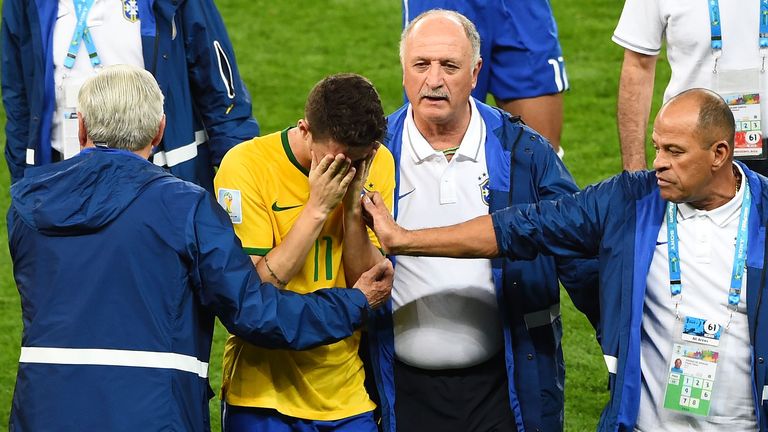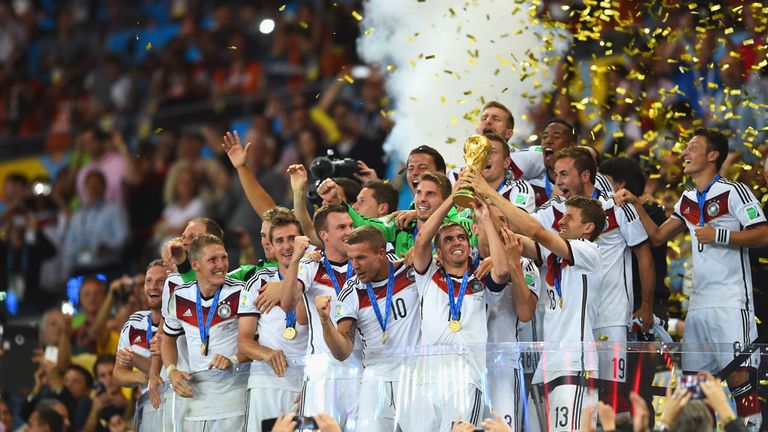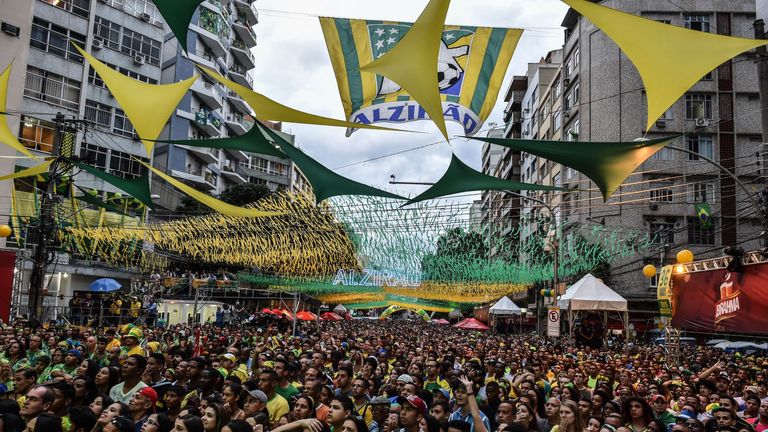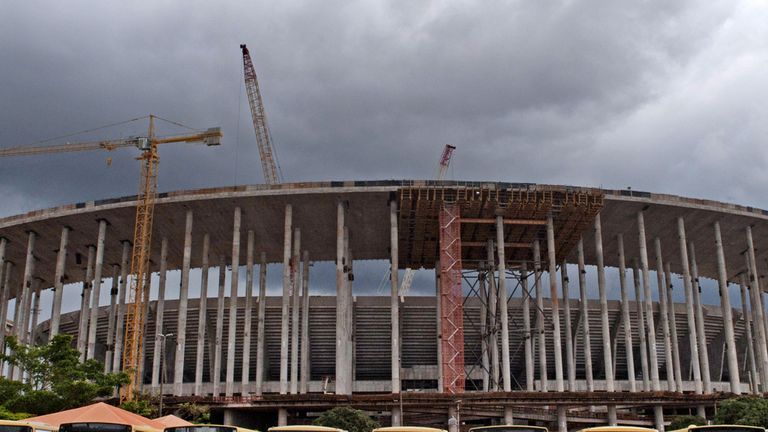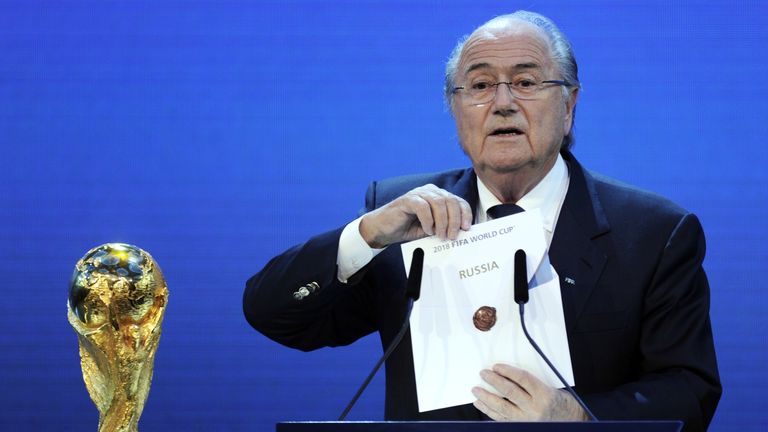World Cup 2014 one year on: A lasting legacy in Brazil?

Monday 13 July 2015 08:19, UK
Just 12 months ago the festival of football that was the 2014 World Cup came to an end. It was a memorable tournament on the pitch, but at what cost to Brazil?
For England, it forced another long, hard look in the mirror, but the competition itself will be regarded as one of the best.
The showpiece which promised so much delivered on the pitch; a roaring start yielded 28 goals in the first eight games, there was controversy throughout, the second highest average attendance in the World Cup's history and a host nation gloriously lifted and brutally discarded.
Here, we look at the legacy of Brazil 2014 on and off the pitch, 365 days since Germany’s final win over Argentina at the Maracana...
Salvaging the Selecao
Brazil’s 7-1 defeat at the hands of Germany was more than a defeat. Tears aside, the World Cup exit marked the end of Luiz Felipe Scolari’s tenure, and 12 months later just seven of the 23-man squad remained.
Dunga’s new-look Brazil won their next 11 games on the trot after the World Cup, conceding just three goals and seeing off the likes of Colombia, Argentina, France and Chile.
As one of the most anticipated Copa America tournaments neared last month, only Neymar, Willian, Fernandinho, David Luiz, Thiago Silva, Dani Alves and goalkeeper Jefferson remained from their World Cup squad.
"We need to learn from what happened," Dunga said last summer. "There needs to be constructive criticism, and things done differently."
Different approach, same result. The average age of the side dropped, but with Neymar missing for the end of the group stage and start of the knockout phase - as he was for the semi-final last summer - Brazil were knocked out on penalties in the last eight by a Paraguay side thrashed 6-1 by Argentina in the next round.
Brazil legend Rivaldo just about summed up the feeling: "I prefer to stay silent and not say anything, but this time I couldn't keep quiet because things are really ugly right now as a country."
Work still to be done, and the depleted domestic league does not help…
Campeonato concerns
Brazil’s last two World Cup-winning squads – in 1994 and 2002 – included 11 and 12 players respectively from the country's top flight, the Campeonato Brasileiro Serie A.
Scolari selected just four from the domestic league in 2014, and Dunga went just one better for this summer’s Copa America.
Compare this to the last three World Cup winners - Germany, Spain and Italy – who had the bulk, if not all, of their squad playing on home soil.
The Brazilian system is haemorrhaging talent to La Liga, the Premier League, Ukraine, Russia and beyond. Real Madrid’s most recent big signing, 23-year-old right-back Danilo, was plucked out of Brazil four years ago by Porto, while Neymar, Lucas Moura, Bernard, Oscar, Paulinho and Lucas Silva are more recent examples of players seeking better opportunities abroad.
Money is the main pull, but despite football remaining Brazil's most ingrained culture, accessibility to the live game is restricted.
The hope that the World Cup would bring a hike in interest in the national league has been realised to an extent; there has been a slight rise to around 16,000 spectators per game on average in the top division, but it is a case of one step forward, one step back.
Ticket prices are still too high for the debt-ridden clubs, and the Campeonato Serie A’s average attendance still ranks 14th in the world, below top divisions in Holland, Japan, USA and second tiers in England and Germany.
Brazil must rebuild again from a depleted base on and off the pitch, but some building blocks are posing more problems than solutions…
The £2.5bn leftovers
Despite widespread concerns, the 12 World Cup stadiums, impressive and atmospheric for 32 days last summer, were just about ready in time for the opening game.
Seven new and five renovated, the cost was around £2.5bn, covering all the major regions in Brazil despite FIFA suggesting that just eight venues were necessary. Now, several stadiums are near-abandoned, showing the first signs of decay and, worst of all, struggling to host any football.
Brasilia and Cuiaba are the posters of a failed legacy. The most expensive World Cup venue at $550m, the Estadio Nacional Mane Garrincha in the capital Brasilia, is now being used as a parking lot for buses, while the Arena Pantanal in Cuiaba is a $215m home for squatters, having been shut down for faulty construction.
Over half of the stadiums built for the tournament are suffering financially and, despite six being used for next summer’s Olympics, a further 12 months of under-use and empty seats will give the surrounding public a constant reminder of the World Cup’s failures off the pitch, worse than any humiliating defeat on it.
Russia’s challenge for 2018 is to prevent going to the same way as Brazil, and with an estimated construction cost of $11,500 per seat compared with $6,500 in Brazil, the pressure for sustainability post-tournament is high.
FIFA's profit from Brazil 2014 was a record £1.4bn, but the public profits were restricted to a four-and-a-half week period now fading in the memory.
